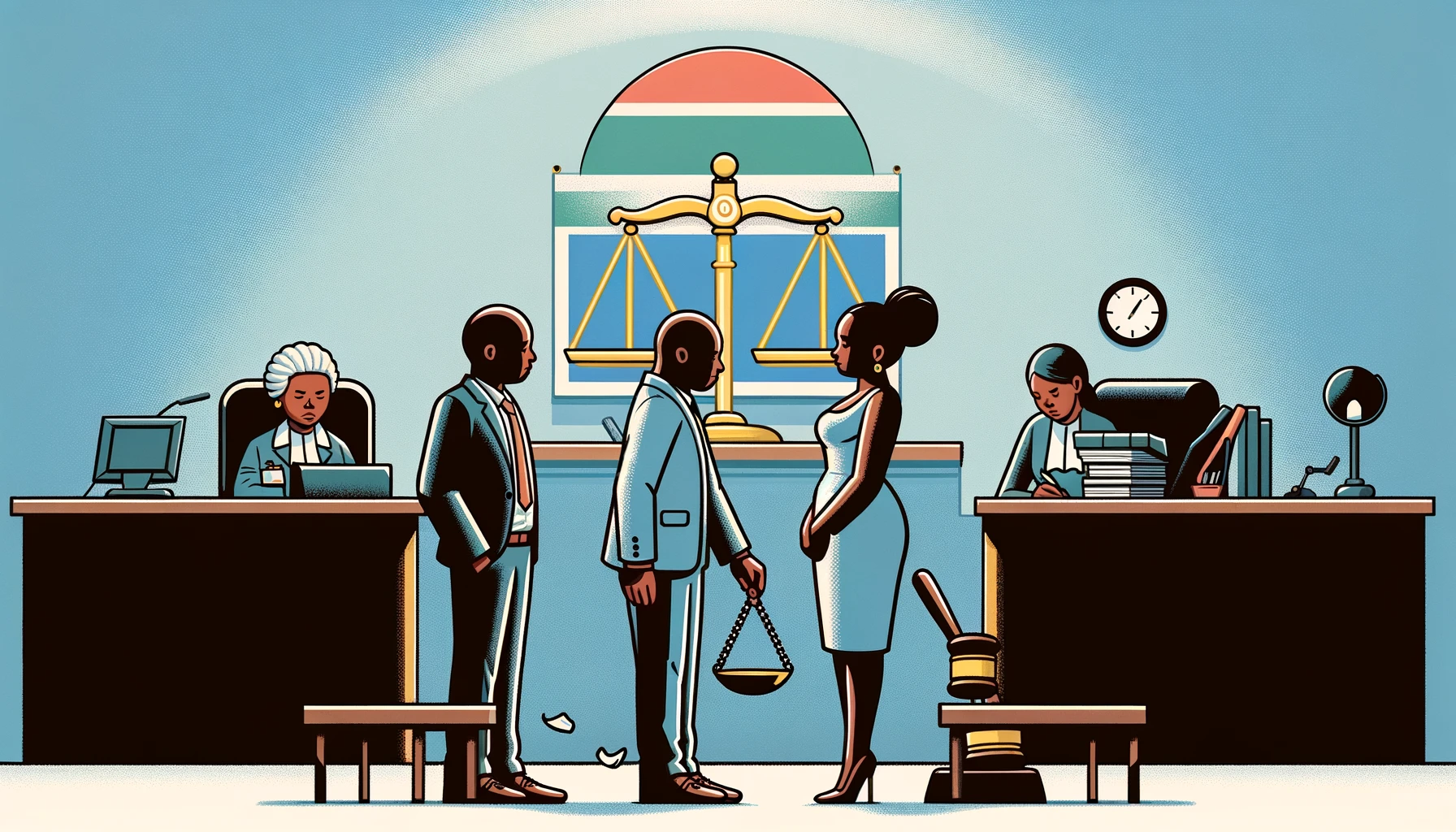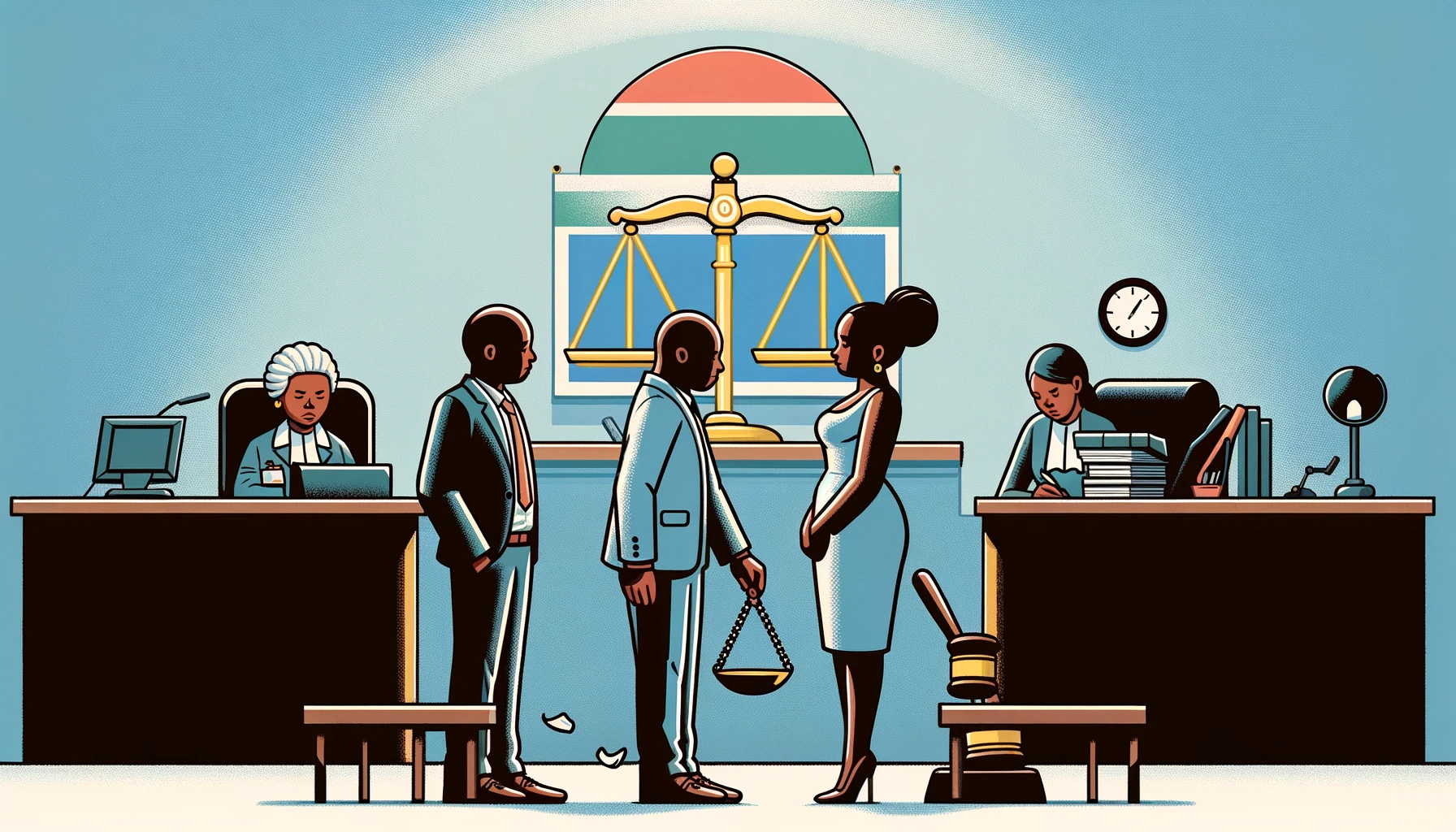
Introduction
In the recent case of K.A.E v W.N.E (58415/2021), delivered on 18 December 2023, the South Gauteng High Court, Johannesburg, grappled with questions surrounding interim spousal maintenance and legal cost contributions in the context of divorce proceedings. This case sheds light on how courts balance the legal duties between estranged spouses, especially when one spouse’s lifestyle significantly outweighs the other’s.
The Case Background
The applicant, a biokineticist in private practice, sought interim maintenance and legal costs contribution from her engineer and businessman husband, from whom she separated in 2017. The marriage breakdown was attributed to the respondent’s extramarital affair, prompting the applicant to leave the marital home. Despite earning independent incomes during their marriage, the applicant found herself in a significantly diminished financial position post-separation.
Court’s Reasoning
The court, presided over by MAHOMED AJ, examined the couple’s lifestyle, financial disclosures, and the respondent’s ability to maintain similar living standards post-separation. A pivotal point was the respondent’s obligation to support the applicant “as any person” and in respect of her “right to dignity” (Paragraph 26). This obligation was emphasized as “inextricably linked to her constitutional guarantee of a right to dignity” (Paragraph 26).
Maintenance Award
The court ordered the respondent to pay R15,000 per month for the applicant’s accommodation, recognizing her need for housing as fundamental to her dignity and the respondent’s legal duty to accommodate her (Paragraph 28).
Legal Costs Contribution
Further, the court awarded R300,000 towards the applicant’s legal costs, payable over three months. This decision rested on the principle of ensuring “equality of arms” in litigation, enabling the applicant to fairly contest the divorce proceedings.
Key Judgment Quote
“A spouse’s right to maintenance and legal cost contributions is not only a financial matter but is deeply rooted in the principle of dignity. It is the court’s duty to uphold this right, ensuring that both parties are equally empowered in their legal pursuits.” – MAHOMED AJ (Paragraph 45).
FAQs
What does interim maintenance entail in divorce proceedings?
Interim maintenance is a temporary financial support awarded to a spouse during divorce proceedings, ensuring they can maintain a reasonable standard of living.
How does the court determine the amount for spousal maintenance?
The court considers factors such as each party’s financial needs and resources, lifestyle during the marriage, and the earning capacities of both spouses.
Is legal cost contribution a common practice in divorce cases?
Yes, especially in cases where there’s a significant disparity in financial resources, the court may order one party to contribute to the other’s legal expenses to ensure a fair legal process.
Brief Overview
The case of K.A.E v W.N.E (Case No. 58415/2021) decided on December 18, 2023, by the South Gauteng High Court, Johannesburg, revolves around the issues of interim spousal maintenance and legal costs contribution. The applicant, K.A.E, a biokineticist, sought maintenance and legal costs from the respondent, W.N.E, an engineer and businessman, post their separation in 2017 following the respondent’s extramarital affair. The couple, married in 2010 and separated in 2017, shared a child born in 2016. The case highlights the complexities of determining maintenance and legal cost contributions, considering each party’s financial status, lifestyle, and obligations post-separation.
Facts of the Matter
•Marriage and Separation: K.A.E and W.N.E married in 2010 and separated in 2017 due to the respondent’s extramarital relationship. The minor child is 7 years old.
•Living Arrangements: Post-separation, the applicant lived with her parents, while the respondent continued in the marital home.
•Financial Background: The applicant is a biokineticist in private practice; the respondent is an engineer and businessman. The respondent pays R23,000 per month for child maintenance.
•Lifestyle: Both parties enjoyed a comfortable lifestyle during the marriage, including international travel and adventure sports. The respondent continues to enjoy similar hobbies post-separation.
•Maintenance Claim: The applicant sought R15,000 per month for accommodation and R300,000 for legal costs.
•Respondent’s Position: The respondent argued that the applicant, living comfortably with her parents, did not demonstrate a need for additional maintenance.
Legal Principles Determined
•Duty of Support: The reciprocal duty of support between spouses, as per common law, remains until the dissolution of the marriage.
•Constitutional Rights: The right to dignity and adequate housing (Section 26 of the Constitution) were considered in determining the need for maintenance.
•Equality in Litigation: The concept of ensuring equality of arms in divorce litigation, allowing both parties fair opportunity to pursue claims.
Legal Findings
1.Spousal Maintenance: The court found the respondent’s duty to support the applicant continued, despite her living with her parents. The request for R15,000 per month for accommodation was reasonable and aligned with their marital lifestyle.
2.Contribution to Legal Costs: The court granted the applicant’s request for R300,000 in legal costs, acknowledging the need for equal footing in litigation to enable wife to seek a fair division of accrual.
3.Child Maintenance and Access: The maintenance, access, and contact concerning the minor child had been agreed upon, with a parenting plan to be formalized.
Practical Implications
•The ruling reinforces the enduring duty of spousal support, even when the requesting spouse appears to have adequate living arrangements.
•It highlights the importance of financial transparency in maintenance and legal cost disputes.
•The judgment underscores the need for equality in legal representation during divorce proceedings.
Notable Quotes
1.“It is his legal duty to accommodate her” [Paragraph 27].
2.“She has a need as any person and in my view, it is inextricably linked to her constitutional guarantee of a right to dignity” [Paragraph 26].
3.“The respondent’s submissions that the applicant has thus far been living comfortably with her parents and should continue to do so, is unsustainable and opportunistic” [Paragraph 27].
4.“I am of the view he can afford to pay her accommodation costs” [Paragraph 33].
5.“The respondent cannot say the same about his financial management of the accruals and it may be necessary to employ the services of a forensic accountant to track down the money flows to ensure that she gets her fair share of the accruals” [Paragraph 43].












